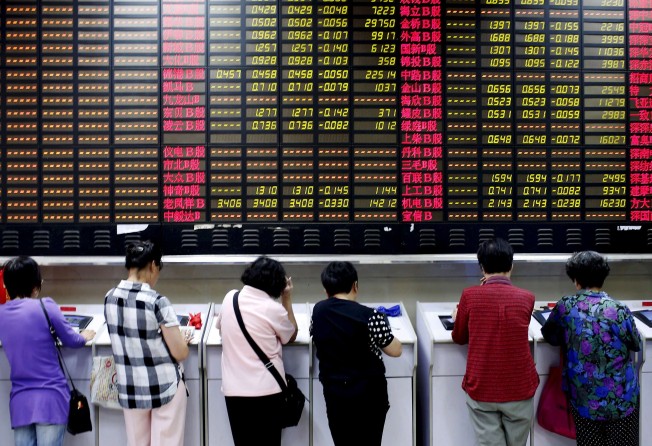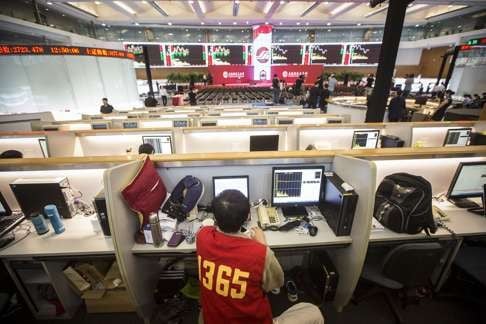New rule blocking reverse mergers taking effect
More than 40 mainland firms have shelved asset restructuring plans over the past three weeks, as the CSRC moves to clamp down on back-door listings

Scores of A-share firms have suspended their asset restructuring plans after the regulator tightened its review procedures on reverse merger deals.
According to state-owned Securities Daily, 41 mainland-listed companies have shelved plans to revamp their businesses, including share placements, asset purchases and capital injection, over the past three weeks following a tightened rule by the China Securities Regulatory Commission (CSRC) to stem the so-called back-door listings.
And the CSRC is likely to take further steps to expel habitual loss-makers used as “shells” by unlisted firms to engineer the listings, according to sources with knowledge of the regulator’s thinking.
The companies that withdrew the listing plans cited tightened regulations and the weak stock market as the main reasons for the decisions.
At the beginning of July, the CSRC published a new rule that barred companies from raising funds via the domestic stock market via reverse merger deals, showing its tough stance on the attempts by overseas-listed firms to return to the mainland market.
Dozens of overseas-listed Chinese companies, following privatisation, started hunting “shell” firms on the A-share market to gain a listing status on the mainland early this year.
The move sparked a round of excessive speculation on the firms and triggered fears among regulators that the irrational buying would exacerbate the mainland’s already volatile market.
“The companies have abandoned the plans since it’s unlikely they could pass the regulator’s review procedure,” said Wang Feng, chairman of Shanghai-based Ye Lang Capital.
“The regulator doesn’t want to see strong buying of those ‘shells’.”
Under such a reserve merger deal, or back-door listing, an unlisted firm normally buys a controlling stake in a public company before injecting its own assets into the listing vehicle.
After becoming listed, the companies can offer new shares in refinancing deals to raise public funds.
Beijing cancelled a plan to set up a new board for emerging industries in March, shutting the formerly overseas-listed firms out.
The board was designed to welcome technology companies traded outside the mainland stock market.
The companies resorted to reverse merger deals as they sought to return to the A-share market, where the valuations of technology stocks was higher than those listed overseas, particularly the United States.

“The wave of reverse mergers isn’t in line with the regulator’s principle of ensuring justice and fairness in the market,” said a former CSRC official.
“CSRC chairman Liu Shiyu is standing firm, deciding to kick those ‘shells’ out of the market.”
Through reverse merger, major owners of the normally underachieving A-share firms, could charge a lofty price from interested buyers, striking it rich overnight despite failing to successfully run their businesses.
Caixin, a financial magazine, reported that more than 100 companies with the potential to become shells for back-door listings could now face being delisted, since the CSRC has taken a dim view towards reverse mergers.
Beijing temporarily halted initial public offerings (IPOs) in the second half of 2015 to stem any fresh influx of capital into new equities, to support the beleaguered market following a boom-to-bust cycle.
After resuming the IPOs, the CSRC slowed down approvals to control the pace of new share sales, also prompting those formerly overseas-listed firms to seek other alternatives to become publicly traded on the mainland.
CSRC chairman Liu, a former Agricultural Bank of China chairman, after taking the helms of the securities regulator in March, made two significant policy changes – putting the implementation of an eased IPO system on ice and scrapping the plan to establish the new board for emerging industries.
He is tasked with maintaining market stability after the stock market rout wiped out US$5 trillion (HK$38.8 trillion) of capitalisation between mid-June and late August.